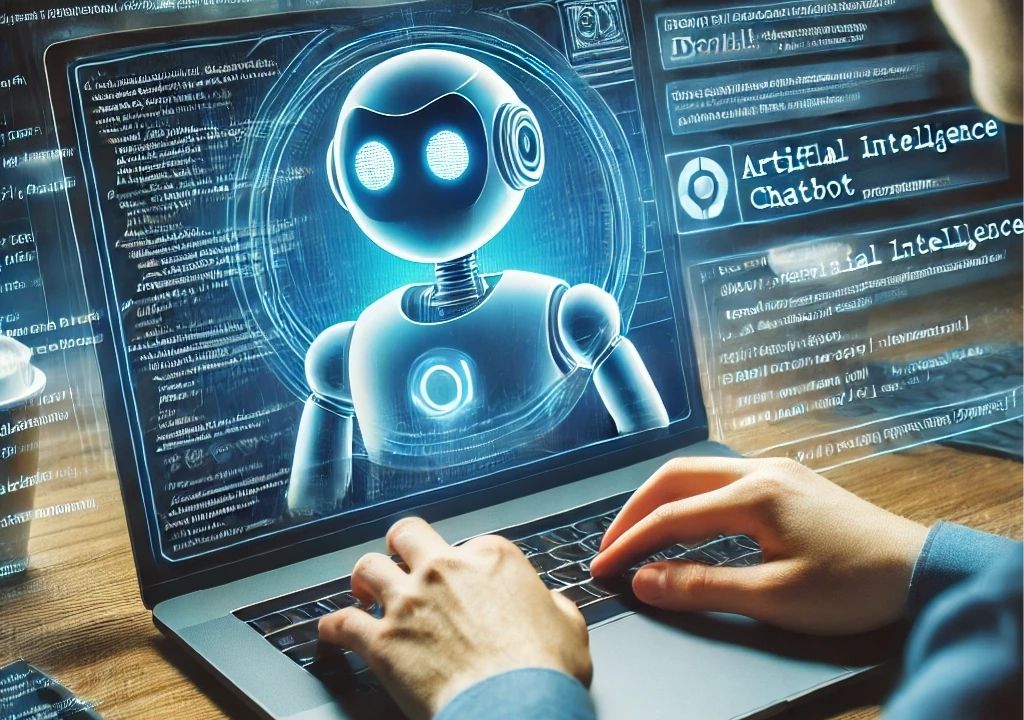Outline
| Section | Subtopics |
|---|---|
| Introduction | – What is AI programming? – Why should you learn AI? – Benefits of learning AI for beginners |
| Understanding AI and Machine Learning | – AI vs. Machine Learning vs. Deep Learning – Real-world applications of AI |
| Basic Skills Required for AI Programming | – Mathematics: Linear algebra, probability, and statistics – Programming languages: Python, R, and Java – Algorithms and data structures |
| Best Programming Languages for AI | – Why Python is the best choice – Other languages for AI development (R, Java, C++) |
| Essential AI Frameworks and Libraries | – TensorFlow and PyTorch – Scikit-learn for Machine Learning – OpenCV for Computer Vision – NLTK and spaCy for NLP |
| Step-by-Step Guide to Learning AI Programming | – Step 1: Learn Python basics – Step 2: Understand machine learning concepts – Step 3: Work on real AI projects – Step 4: Join AI communities and forums |
| Best Online Courses and Resources | – Free AI courses for beginners – Paid AI certification programs – Books and YouTube channels for AI learning |
| Hands-on AI Projects for Beginners | – AI chatbots – Image recognition system – Sentiment analysis tool |
| AI Tools and Platforms for Beginners | – Google Colab and Jupyter Notebook – Kaggle for datasets and competitions – IBM Watson for AI development |
| Common Mistakes to Avoid When Learning AI | – Skipping the basics – Not practicing enough – Ignoring data preprocessing |
| Career Opportunities in AI | – AI engineer vs. Data scientist – How to get your first AI job |
| How to Stay Updated with AI Trends | – Best AI blogs and websites – AI conferences and meetups |
| FAQs | – How long does it take to learn AI programming? – Can I learn AI without coding? – What are the best free AI courses? |
| Conclusion | – Recap of AI learning journey – Encouragement for beginners |
How to Learn AI Programming for Beginners – A Complete Guide
Introduction
Artificial Intelligence (AI) is transforming the world, and learning AI programming can open doors to incredible opportunities. Whether you want to build smart applications, automate tasks, or develop AI-driven solutions, starting your AI journey today is a smart choice.
In this guide, we will cover everything you need to know about learning AI programming from scratch, even if you have no prior coding experience.
Understanding AI and Machine Learning
AI is a broad field that includes:
-
Machine Learning (ML): Algorithms that allow computers to learn from data.
-
Deep Learning: A subset of ML using neural networks to mimic human brain functions.
-
Natural Language Processing (NLP): Teaching machines to understand human language.
Basic Skills Required for AI Programming
To start learning AI, you need a strong foundation in:
✅ Mathematics – Linear algebra, probability, and statistics.
✅ Programming – Python is the most beginner-friendly language for AI.
✅ Algorithms & Data Structures – Helps in understanding AI model structures.
Best Programming Languages for AI
🔹 Python – The most widely used AI language.
🔹 R – Popular for statistical analysis and machine learning.
🔹 Java & C++ – Used in enterprise AI applications.
Essential AI Frameworks and Libraries
💡 TensorFlow & PyTorch – Used for deep learning models.
💡 Scikit-learn – Ideal for machine learning projects.
💡 OpenCV – Useful for image recognition and computer vision.
Step-by-Step Guide to Learning AI Programming
🚀 Step 1: Learn Python basics (variables, loops, functions).
🚀 Step 2: Understand machine learning concepts and algorithms.
🚀 Step 3: Work on AI projects to gain practical experience.
🚀 Step 4: Join AI communities and participate in competitions like Kaggle.
Best Online Courses and Resources
📌 Free AI Courses: Coursera, Udacity, and MIT OpenCourseWare.
📌 Paid AI Certifications: Google AI, IBM AI, and DeepLearning.AI.
📌 Books & YouTube Channels: “Hands-On Machine Learning” & Sentdex YouTube channel.
Hands-on AI Projects for Beginners
💻 AI Chatbot – Build a chatbot using Python and NLP libraries.
📸 Image Recognition System – Train a model to identify objects in images.
📝 Sentiment Analysis Tool – Analyze text sentiment using machine learning.
AI Tools and Platforms for Beginners
🔹 Google Colab – Free cloud-based Jupyter Notebook for AI coding.
🔹 Kaggle – Offers AI datasets and competitions.
🔹 IBM Watson – AI-powered platform for beginners.
Common Mistakes to Avoid When Learning AI
❌ Skipping the Basics – Learn Python and math before diving into AI.
❌ Not Practicing Enough – AI requires hands-on experience.
❌ Ignoring Data Preprocessing – Clean data leads to better AI models.
Career Opportunities in AI
👨💻 AI Engineer – Develops AI models and applications.
📊 Data Scientist – Analyzes complex data for AI insights.
💡 AI Consultant – Advises businesses on AI implementation.
How to Stay Updated with AI Trends
🌎 Follow AI Blogs & Websites: Towards Data Science, OpenAI Blog.
🎙️ Attend AI Conferences: NeurIPS, CVPR, and AI Expo.
🤝 Join AI Communities: Reddit AI, Stack Overflow, and GitHub.
FAQs
❓ How long does it take to learn AI programming?
✔️ Typically, 6-12 months with consistent practice.
❓ Can I learn AI without coding?
✔️ Yes, with AI platforms like Google AutoML and IBM Watson, but coding is recommended.
❓ What are the best free AI courses?
✔️ Google AI for Everyone, Fast.ai, and Stanford CS229.
Conclusion
AI programming is an exciting field with endless possibilities. Start with Python, explore AI libraries, and build real-world projects to master AI. Stay consistent, keep learning, and soon, you’ll be an AI expert!

